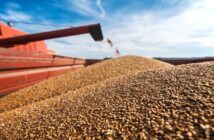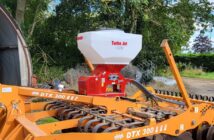Poor broadband and mobile connectivity “significantly hinder” farmers’ ability to run effective, food-producing businesses, suggests the NFU.
A 2024 survey of 755 NFU members revealed that only 38% consider their broadband adequate for business needs, while 57% report download speeds of less than ten Megabits per second (Mbps). This figure is significantly lower than the national average speed of 69.4 Mbps and falls well below the government’s nationwide target of 1,000 Mbps — or Gigabit-capable internet — by 2030.
Many farmers are still unable to access fibre, 4G and 5G services. Although 94% percent of farmers have some access to 4G, only 51% of them report acceptable coverage and fewer than a quarter can make or receive calls across their entire farm.
The PSTN (Public Switch Telephone Network) switch off deadline is looming and the 3G switch off is underway.
The upcoming PSTN switch off on January 31, 2027 will see the copper wires used to run the UK’s telephony system turned off. After this date, making phone calls from a landline will require a reliable internet connection. Likewise, 3G will no longer be available in the UK after the end of 2025, meaning that reliable 4G or 5G connectivity will be essential for mobile communications.
Without access to robust digital infrastructure to replace these technologies, farmers risk being left without functioning communication systems, which could endanger their safety in the case of accidents or break-ins
Farmers and other rural businesses stand to benefit from government-backed initiatives like Project Gigabit, a £5 billion programme to improve fibre connectivity in hard-to-reach areas. With over £1 billion now awarded in contracts, the scheme’s progress will ensure that farmers are not left behind in the digital switchover.
Similarly, the Shared Rural Network (SRN) — a collaboration between the country’s ‘big four’ mobile network operators (MNOs) of EE, O2, Vodafone and Three — aims to deliver 4G coverage to 95 per cent of the UK by the end of 2025 and nationwide by 2027.
However, according to a National Audit Office report released in February 2024, the programme is behind schedule and it is unclear whether it will be delivered on time.
Kristian Torode, co-founder of business comms provider Crystaline says while systemic improvements are underway, farmers should take proactive steps to future-proof their communications systems. “Single Order Generic Ethernet Access (SoGEA) broadband is available nationwide and provides a cost-effective and reliable alternative to older broadband connections such as asymmetric digital subscriber lines (ADSL).
“Upgrading analogue landline to a Voice over Internet Protocol (VoIP) phoneline will allow farmers to continue making phone calls over the internet after the PSTN switch-off.”




